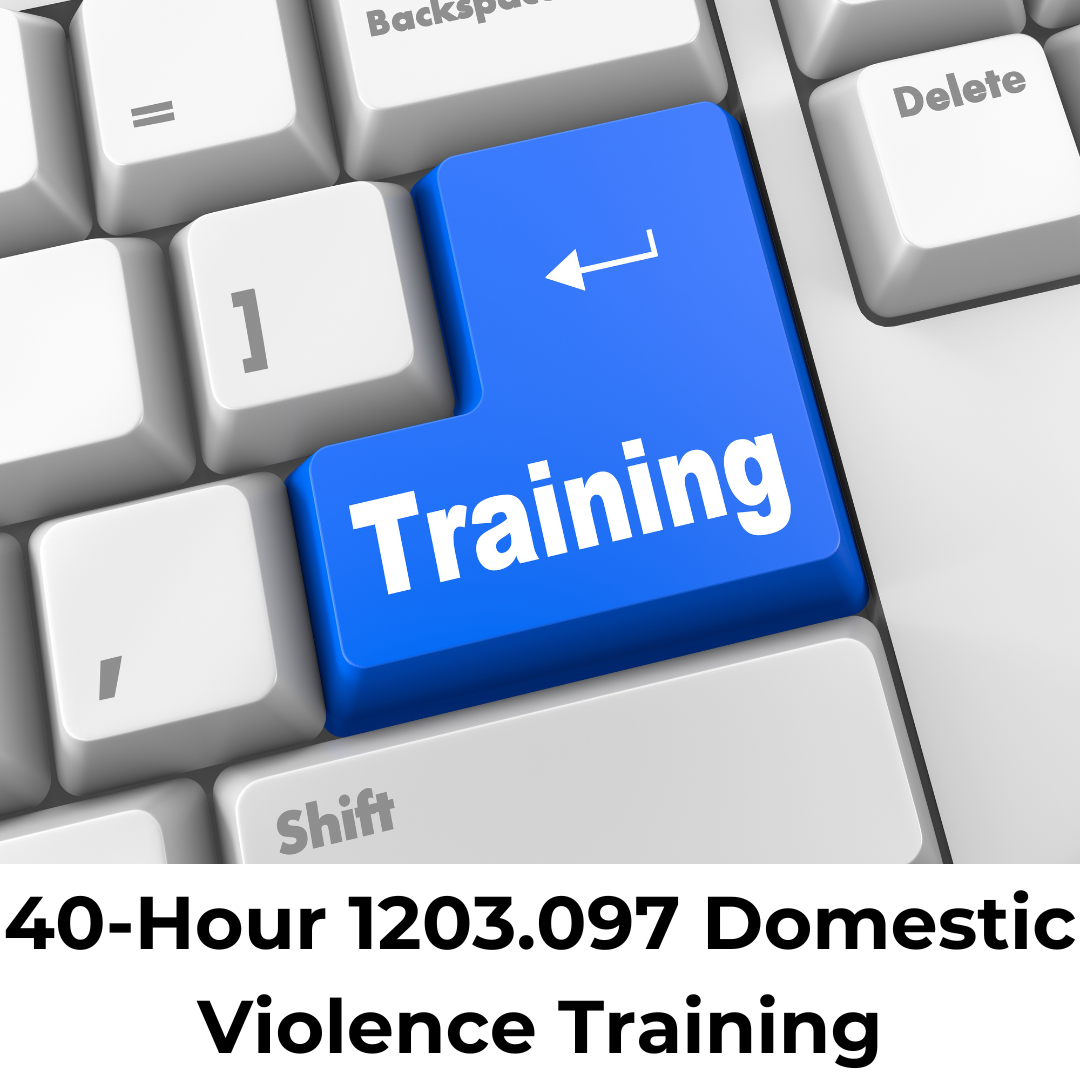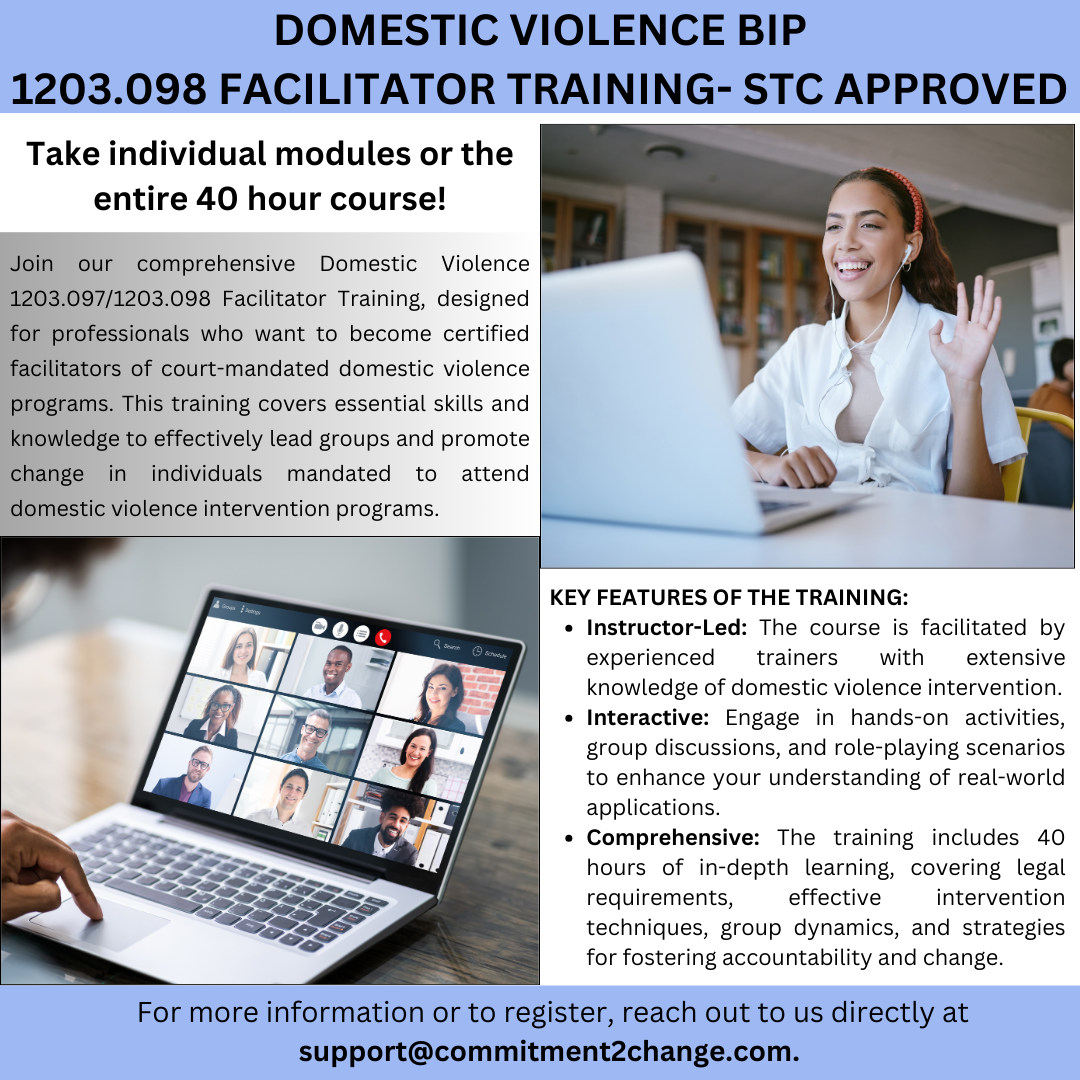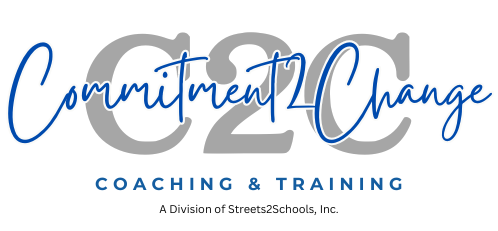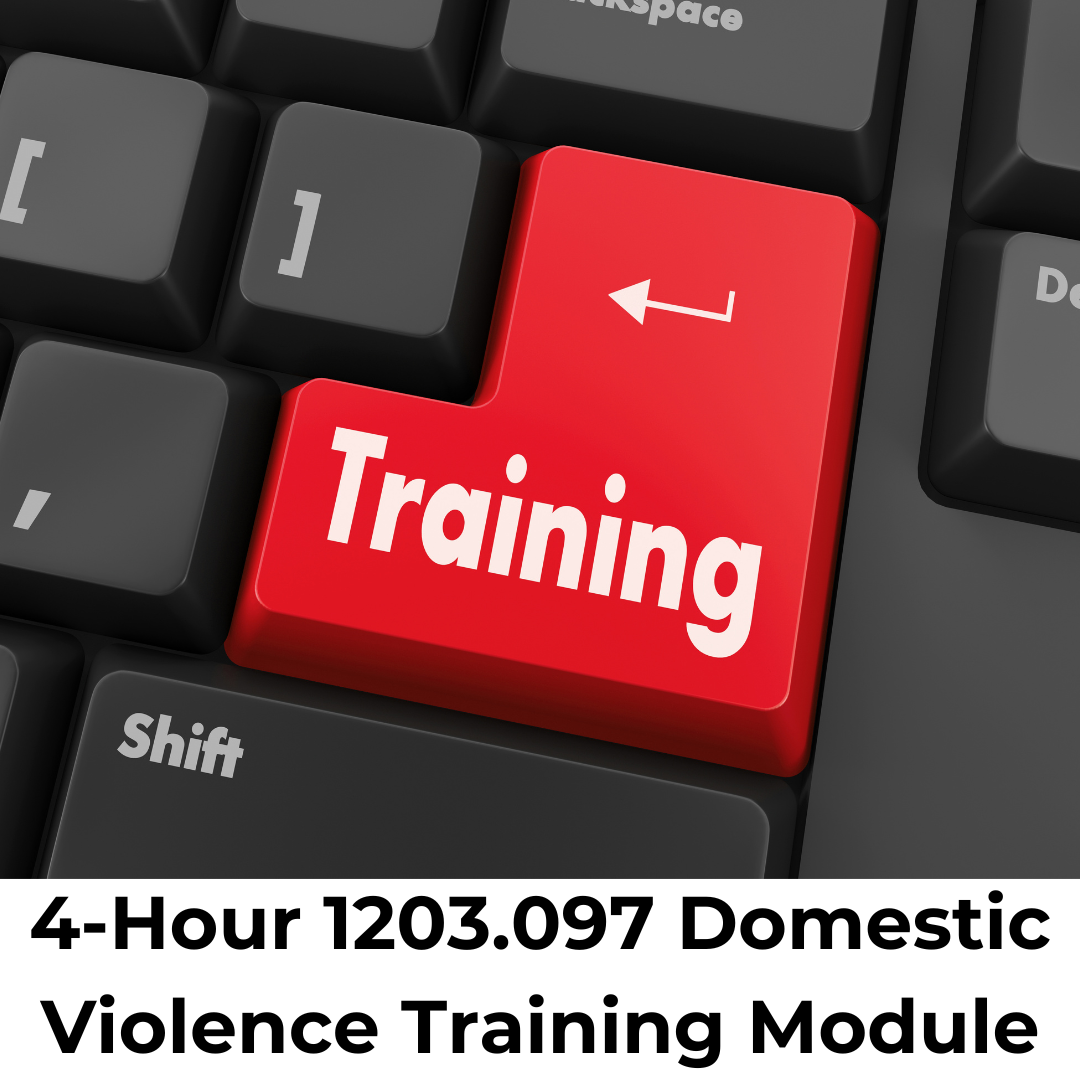1203.097/1203.098 40-HOUR Domestic Violence Training- STC APPROVED
Join our comprehensive Domestic Violence 1203.098 40-hour Facilitator Training, designed for professionals who want to become certified facilitators of court-mandated domestic violence programs. This training covers essential skills and knowledge to effectively lead groups and promote change in individuals mandated to attend domestic violence intervention programs.
Key Features of the Training:
Instructor-Led: The course is facilitated by experienced trainers with extensive knowledge of domestic violence intervention.
Interactive: Engage in hands-on activities, group discussions, and role-playing scenarios to enhance your understanding of real-world application.
Comprehensive: The training includes 40 hours of in-depth learning, covering legal requirements, effective intervention techniques, group dynamics, and strategies for fostering accountability and change.
NEW YEAR Pricing Special- Get it while it lasts at a discount!
Join our comprehensive Domestic Violence 1203.098 40-hour Facilitator Training, designed for professionals who want to become certified facilitators of court-mandated domestic violence programs. This training covers essential skills and knowledge to effectively lead groups and promote change in individuals mandated to attend domestic violence intervention programs.
Key Features of the Training:
Instructor-Led: The course is facilitated by experienced trainers with extensive knowledge of domestic violence intervention.
Interactive: Engage in hands-on activities, group discussions, and role-playing scenarios to enhance your understanding of real-world application.
Comprehensive: The training includes 40 hours of in-depth learning, covering legal requirements, effective intervention techniques, group dynamics, and strategies for fostering accountability and change.
NEW YEAR Pricing Special- Get it while it lasts at a discount!
Join our comprehensive Domestic Violence 1203.098 40-hour Facilitator Training, designed for professionals who want to become certified facilitators of court-mandated domestic violence programs. This training covers essential skills and knowledge to effectively lead groups and promote change in individuals mandated to attend domestic violence intervention programs.
Key Features of the Training:
Instructor-Led: The course is facilitated by experienced trainers with extensive knowledge of domestic violence intervention.
Interactive: Engage in hands-on activities, group discussions, and role-playing scenarios to enhance your understanding of real-world application.
Comprehensive: The training includes 40 hours of in-depth learning, covering legal requirements, effective intervention techniques, group dynamics, and strategies for fostering accountability and change.
NEW YEAR Pricing Special- Get it while it lasts at a discount!
This is a live training. Please see the catalog page for the date of the next training: Catalog
STC APPROVED
Module Descriptions
Module 1: Victim Safety and the Role of Shelters I
The Domestic Violence Cycle: Understanding the phases and patterns of domestic violence.
Primary, Secondary, and Tertiary Victims of Domestic Violence: Identifying the different levels of victim impact.
Importance of Attachment Processes: Exploring how attachment influences victims' experiences and recovery.
Domestic Violence and the Double Bind: Examining the conflicting pressures and challenges victims face.
Module 2: Victim Safety and the Role of Shelters II
Complexity of Intimate Partner Violence: Delving into the multifaceted nature of intimate partner violence.
Finding Safety and Security: Strategies and approaches for victims to secure safety.
Victim Safety Plan: Creating effective safety plans for victims in crisis situations.
Shelters from the Storm: Understanding the critical role of shelters in providing refuge and support.
Module 3: Multi-Cultural/Ethnic and Cross-Cultural Diversity I
Ethnic vs. Cultural Identity: Exploring the distinctions between ethnic identity and cultural identity and their impacts.
Diversity Trifold: Understanding the three key aspects of diversity: race, culture, and ethnicity.
Multi-Cultural/Ethnic and Cross-Cultural Diversity Communication: Developing effective communication strategies across diverse cultural and ethnic groups.
Reciprocity: The role of mutual exchange and understanding in fostering respect and collaboration.
Module 4: Multi-Cultural/Ethnic and Cross-Cultural Diversity II
Deeper Dive into Understanding Multiculturalism, Ethnicity, and Diversity: Expanding on key concepts and their significance in society.
Societal Power and Privilege: Analyzing the dynamics of power and privilege in various cultural and ethnic contexts.
Developing an Equity Pedagogy: Creating educational approaches that promote fairness and inclusivity.
Widen the Window of Receptivity: Enhancing openness and responsiveness to diverse perspectives and experiences.
Module 5: Substance Abuse in Domestic Violence
Substance Misuse, Abuse, and Addiction: Understanding the continuum of substance use issues.
Interaction Between Substance Abuse and Domestic Violence: Exploring how substance abuse exacerbates domestic violence situations.
Substance Abuse Treatment Programs: Overview of treatment options for individuals in domestic violence contexts.
Substance Abuse Intervention Services: Identifying and implementing effective intervention strategies.
Module 6: Intake and Assessment, History of Violence, and Nature of Threats
Intake Process – Part 1: Introduction to the initial steps in the intake process for domestic violence cases.
Intake Process – Part 2: Continuation and deeper exploration of the intake process.
Nature and Severity of Violent Behavior: Understanding the types and patterns of violent behavior.
Initial, Formative, and Summative Assessments: Evaluating the history of violence and potential threats.
Module 7: Group Content Areas I – Gender Roles, Nature of Violence, Dynamics of Power and Control
Nature of Violence: Examining the underlying causes and manifestations of violence.
The Domestic Violence Cycle: Understanding the repetitive patterns of domestic violence.
Dynamics of Power and Control: Analyzing power dynamics and control tactics in domestic violence.
Gender Roles in the Cycle of Violence: Exploring how gender roles contribute to the cycle of violence.
Module 8: Group Content Areas II – Effects on Children, Trauma, Accountability, and Termination
Effects of Domestic Violence on Children: Understanding the impact of domestic violence on children.
Outcomes of Trauma and Exposure to Violence: Exploring the psychological consequences of trauma.
Accountability and Sustainable Behavioral Change: Promoting accountability and achieving lasting behavioral change.
Termination and Completion Issues: Addressing challenges in ending a program or treatment.
Module 9: Group Facilitation
Pre-setting and Reinforcing Group Norms: Establishing and maintaining a productive group environment.
Focus on Successful Skill Development and Behavioral Change: Guiding participants toward effective skill-building.
Facilitate a Generative Group Discussion: Encouraging meaningful and productive discussions.
Close with Client Commitment: Ensuring participants leave with a clear commitment to applying what they've learned.
Module 10: Domestic Violence and the Law, Ethics, PC1203.097, and the Role of Programs
Overview of California PC 1203.097 and 1203.098: Understanding the legal framework related to domestic violence intervention.
The Role of Provider Programs: Exploring the responsibilities of service providers.
Ethics and Professional Best Practice as a Service Provider: Upholding ethical standards and implementing best practices.








